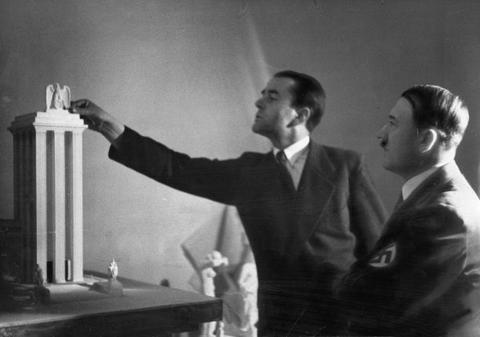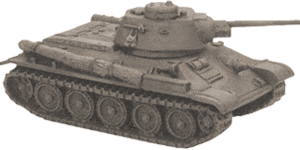World War II: Getting Past the Numbers

The Second World War ended seventy-two years ago. Yet, today it is still easy to find historians arguing that the reason Germany lost the war boiled down to a numbers game. Perhaps the leading advocate of the brute force thesis behind Germany's predetermined defeat is David Stahel. For instance Stahel claims Germany had been defeated in August of 1941 (the driving claims behind all of his books – and yes I’ve read them all). I believe, however, that even in taking into account the disastrous Operation Barbarossa (Germany's enormously flawed plan for and subsequent invasion of the Soviet Union in 1941) that Germany’s renewed push in 1942 (Operation Blue) had a considerable chance of cutting off the Soviet Union from access to roughly 90% of its oil supply (give or take depending upon the source). This would have crippled the Soviet war economy and a Red Army increasingly reliant on firepower and mobility as it reclaimed the deep operational doctrine it had previously developed, but foolishly tossed aside in the years prior to the German invasion. In addition, and though a successful conclusion to Case Blue would have merely crippled and not destroyed the Soviet Union there is no question it would have granted Nazi Germany the time to consolidate its hegemony on continental Europe and engage in a struggle for global domination against the Anglo-American alliance and Soviet rump state (which is what my book Why Germany Nearly Won outlines).
The reality is that throughout the Second World War the Allies controlled the vast majority of the world’s territory, its population, and global economic output; which hence translated to immense military might. Nevertheless, the conventional wisdom that had evolved over time, and as to the war's outcome, has presented an overly simplistic, deterministic narrative for explaining one of history’s most complicated series of events. This narrative essentially reduced the war’s outcome to one easily explained as arising from the preponderant power produced by sheer Allied numbers; and for the most part found that once Germany decided to attack the Soviet Union that it had essentially lost the war.
But this didn’t add up – so to speak – there was something not quite right. For instance, how did a quantitatively smaller, and often-times technically inferior Wehrmacht, run circles around opponents with far more “brute force” strength in 1939-1942 but then lose the war in 1943-45 for reasons overwhelmingly attributed to brute force and mass. To be clear not everyone has argued in such a manner. Take, for example, Richard Overy; who introduced other ideas for why the Allies won. But, and for the sake of brevity, the bottom line is that questions such as this led me to beginning a kind of epistemological study of the war to see if in fact what was conventionally considered the “truth” about the war actually matched up with the data. The outcome of this study then caused me to construct a qualitative vs. quantitative framework for analyzing the European war’s component events (with a focus on economic and military matters). This framework was one that I tested repeatedly against the best possible knowledge/data available about the war. The outcome of this study ultimately developed into the three-pronged thesis for my book. A thesis which advances my belief that Germany had a shot at securing its future (thereby winning the war given the Third Reich’s heinous primary goals) – via coming extraordinarily close to denying the Soviet Union access to its most important economic resources. This in turn could have fueled a Nazi dominated European continent capable of effectively challenging the U.S. dominated North American colossus in either an enduring hot or cold war for global supremacy.
One of the by-products of my research is that in answering the question why the Second World War in Europe ended in German defeat one must start with Germany itself. And that means evualting the decision-making driving the German war effort. Note that all of the major powers to fight in the Second World War made at times eggregious mistakes. However, Germany's reached a level and quality unlike any other. This is important to understand because Germany did not have the resources of it's foes and thus lacked the ability to bounce back from major mistakes. Yet, even after a series of whoppers that turned a sound strategic decision (attacking the Soviet Union) into a mess of a campaign (Barbarossa) Germany still largely held it's future in it's own hands throughout much of the pivotal year of 1942. Nevertheless the mistakes kept coming. As a result the year 1942 hardly brought Hitler closer to his bombastic and genocidal dream of a thousand year Reich. The level of self-inflicted errors that led to this reality is truly mind-boggling.
For example, I just finished a reading of Joachim Fest's superb biography of Albert Speer (entitled Speer, The Final Verdict). As I perused the pages, I was struck yet again by the sheer level of German incompetence. To wit, as late as the spring of 1942 the German political establishment was playing a key role in undermining Speer's efforts to put the German economy on a total war footing similar to what Britain and the Soviet Union had been on since each nation went to war with Germany (which in Britain's case meant going on well over two years by that point). Say what you want about Speer (pictured here with Hitler) but the man had a genius for organization. I have no doubt that had Hitler forcefully implemented everything Speer wanted to do (remembering that much of Speer's effort was based on Fritz Todt's work before his death in February 1942) that the Second World War would have been even more of a nail-biter for the Allies and Soviet Union. But Hitler did not. This in large part stemmed from Hitler's sensitivity to German public opinion. Yes, that is shocking as it sounds but entirely true during especially the early war years. It stemmed in part from when Hitler witnessed the 1918 collapse in public support for Imperial Germany's war effort, and in part his likely recognition that it had taken an immense propaganda effort to boost his popularity to the level it had reached in Germany during the late 1930's.
As a result of these political machinations German armaments output early in 1942 was still limping along in comparison to the rate of production it's opponents had attained. To that end Fest notes that Speer had been shocked to find that upon replacing Todt in February of 1942 he could still find armaments factories in Berlin running on single shifts and largely shut down for the evenings. To make matters worse the Gauleiters ran their fiefdoms in an almost feudal manner. Every time Speer sought to re-orient economic activity in the Third Reich's various away from civilian purposes (for example when Speer sought to re-assign the hundreds of thousands of civil servants still manning their posts) the Gauleiters and Bormann put up a brick wall of resistance. At times the Gauleiters even actively argued that the war could be fought without asking big sacrifices of the German population (or for that matter the German political elites with some of the biggest pushback being from Gauleiters concerned about they and their peers losing their hunting lodges, domestic servants, luxury goods and the like).
Invariably Hitler would decline to back Speer against these party officials hurting the German war effort from within. Nor would any high-ranking Nazi Party officials agree to back Speer's ideas regarding re-assigning to the Wehrmacht the roughly three million Germans working in the security state. Instead, one could only shiver at how lucky the rest of the world was that the German political establishment was so short-sighted as to avoid shuttling such a substantial influx of manpower into it's economy and armed forces during 1942-1943.
Moreover, it is more than a little ironic that it was the U.S. and Great Britain joining the Soviet Union in creating the planned economies that would win the war while Speer and Todt, in spite of their best efforts, could never fully reign in and rationalize the heavily politicized German economy to the level neccessary. So it was that Germany once again played a key role in undermining it's own war effort regardless of the best but largely only weakly effectual efforts of its actual enemies during the war's critical years of 1940-1942.



Post new comment